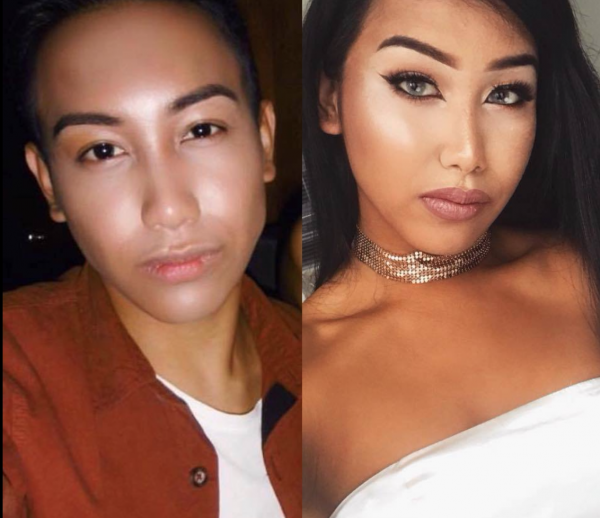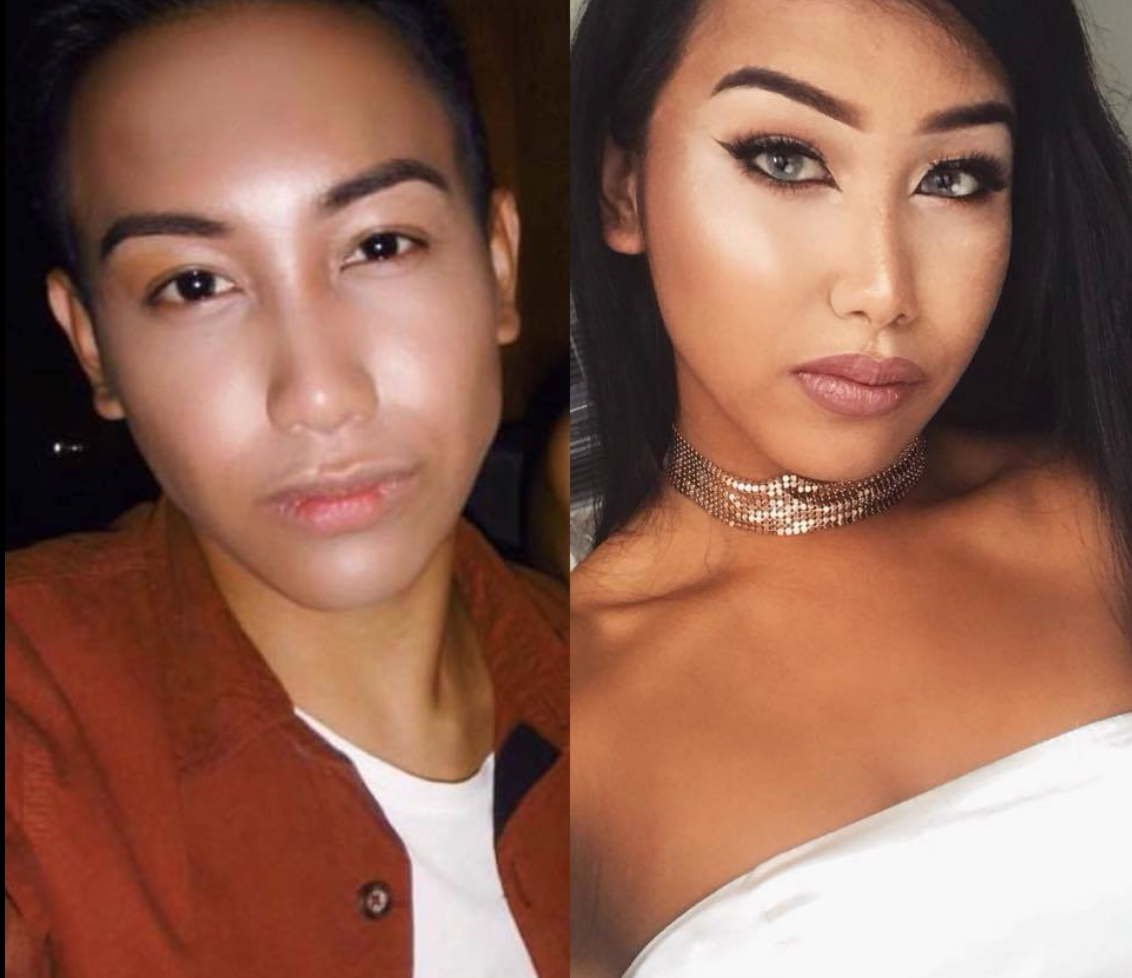
The following excerpt is from a report of the inquiry into discrimination experienced by transgender individuals by the New-Zealand Human Rights Commission.
“Trans people in New-Zealand face discrimination that undermines the ability to have a secure family life, to find accommodation, to work, to build a career and to participate in community life. At worst, there was constant harassment and vicious assault” (New-Zealand Human Rights Commission, 2008, p. 9).
Ari
Ari is a resilient, strong, beautiful, intelligent and kind transgender young woman who has faced many adversaries throughout her transition to her preferred gender. Ari has lived an incredible life resulting in a high level of maturity and an authentic view of the world we live in today. I admire Ari’s strength and transparency so I decided to approach her for an interview!
The following questions highlight aspects of life Ari has faced that many people will not undergo during their entire lifetime. Ari is just like any other young woman! She has supportive friends and a great workplace. I hope this article will help other people to understand that individuals who identify as transgender still face discrimination in society today, however, there are also many fellow comrades who are here to support the lgbt+ community.
I believe that Ari is an individual that many people struggling with their identity can look up to and seek guidance from.
Hadley: What age did you first realise you wanted to become a woman? What were the signs?
Ari: “I always knew something was off. I just couldn’t put my finger on it. I always felt out of place when they separated boys and girls for activities in high school and I was super into my video games especially MMORPGS! I would play as female characters and even tell people I was a female in real life. Complete with a fake MySpace account and name (Cassandra) haha! It’s funny looking back at it but it was a little escape for me”.
Hadley: What were your friends and families thoughts when you decided to make the transition at first?
Ari: “My friends didn’t bat an eyelash. They’ve been nothing but supportive. I thankfully haven’t lost any friends since transitioning! My family took it the hardest (minus my big sister who’s super supportive) my dads come a long way! He recently called me his little princess and is actively using female pronouns (with my sisters stern encouragement)
Hadley: What impact has the health system had on your transition? Were there any aspects you found difficult? How can healthcare professionals help in regards to their approach towards those wishing to transition?
Ari: “I found it a bit difficult being pointed in the right direction! The first GP I saw said I don’t look transgender and that I’m too old to transition even though I was only 23. The biggest thing I’ve found is the lack of research! It’s a fairly new thing I guess as not many doctors know as much about hormones as I’d like. For example, switching from Estradiol (Estrogen Patches) to Progynova (Estrogen Pills) took a bit of figuring out for my GP in terms of what dosage I should be on. I was put on the wrong dose for a week.
Hadley: What are the positive aspects you’ve noticed since transitioning?
Ari: I’ve loved seeing my body change. I’ve loved seeing myself becoming myself more and more every day. I look back at photos early on in my transition and cringe but I’m still proud of how far I’ve come and the beautiful young lady I am”.
Hadley: What are the negative aspects you’ve come across since transitioning? Have you ever faced discrimination?
Ari: “The worst is the in-between phase when you’re on hormones but presenting as male. It’s horrible. I’m so glad I’m well and truly past that. I haven’t experienced much discrimination. Most of it is unintentional or comes from a place of ignorance like people using the wrong words because they genuinely are so uneducated about preferred pronouns. Like for example, I don’t particularly like the term “ladyboy” or “shemale”. I don’t need to be boxed or labeled. Just call me Ari and we’ll get along just fine. I was kicked out of a celebrities after party a while ago. His security called me a “man” and said, “we don’t fuck with that shit”. It was probably the most dehumanising experience ever. I felt like a joke and that my identity wasn’t valid. I don’t think I’ve spoken out about it that much”.
Hadley: Do you have supportive friends?
Ari: “They aren’t friends they’re family and I love them so much!!
Hadley: What are the misconceptions about transgender individuals? Ari: “That was some kind of fetish that exists for someone’s pleasure and entertainment. I’m a regular girl. I work a 9-5 job and hang out with my friends. I’m just like everyone else”.
Hadley: Have you ever experienced workplace discrimination?
Ari: “I have never been discriminated in the workplace. My work was soooo super supportive. Changed my name on our computer and email system and got me a new swipe tag with my correct name on it. When I decided to start presenting as female they immediately used the correct pronouns and called me Ari”.
Hadley: What advice would you provide to individuals who would like to transition?
Ari: “To do it for yourself and yourself only. Put yourself and your happiness first. Over everything and everyone. It’s not selfish. It’s self-love. You’ll need to take care of yourself emotionally and physically. It’s a tough time but surround yourself with people you love and you’ll get through it”.
Hadley: How has your life changed since transitioning?
Ari: “I get to be me and that’s something I couldn’t say before. I had to grow up real fast since I transitioned and was kicked out of home. I had to learn to support myself and not ask for anything from my parents. Life’s still hard but I’d rather struggle as Ari than live an easy life as Andrew. I’ve grown and matured so much as a woman!”
Wise words from Ari and changes we need to make in regards to the exclusion of transgender individuals in society:
“I would love to see sexually powerful women being celebrated! There is a strength and beauty in a woman’s sexuality and her body. Why should we as women hide that? We’re always taught modesty is key but I feel like that can innately teach women to be ashamed of their bodies. I’m proud of my body because I had to fight to have it so I’m gonna celebrate it. As for beauty pageants and “natural-born women” is an outdated term. It implies transgender men are somewhat women because of the genitalia they were born with. Your genitalia doesn’t define your gender. you define your gender. It’s unfair I can’t compete in pageants I know I would excel in. I’d love to have the same opportunities as other women because at the end of the day I’m just as much a woman as the next girl. I love pageantry and some of the strong talented and inspirational women that have come from it but they need to review and reflect on whether or not they’re as progressive as the rest of the world or if they’re happy sitting on redundant, discriminative and irrelevant ideals that have no place in 2018”.
Hadley: Thank you, Ari. I’m so happy for you. You’re an amazing role model to individuals struggling with their identity and those who feel discriminated against. I know you will continue to stand up for what you believe in. I’m so thankful you answered my questions and unveiled the reality of your life. You’re one of the strongest women I know.
References
New-Zealand Human Rights Commission. (2008). To be who I am/ Kia noho au ki tōku anō ao. Retrieved from http://www.hrc.co.nz
ABOUT HADLEY GRACE ROBINSON-LEWIS: I studied at the Auckland University of Technology where I completed a Bachelor of Health Science in Nursing. I’m Passionate about, Neurology, Psychiatry, Medicine, societal issues and Maori Health. I’m highly passionate about advocating for the mentally ill. My passion for assisting the underprivileged and those experiencing hardships in relation to mental illness has led me to charity work. In 2017 I initiated a $25,000 renovation through Habitat for Humanity for a women’s refuge in Auckland. I would like to share my passion and experiences with everyone.






Hadley, that was an insightful interview with Ari, she’s an amazing person.
It’s unfortunate that Ari’s GP didn’t understand that transiting is not age-dependent. So the doctor’s assertion that she’s “too old to transition even though [she’s] was only 23” is simply not correct.
But most likely that is not the doctor’s fault as many GPs find it difficult to access correct information on this subject. This is something Agender, Rainbow Labour, and other similar groups are working on.
One solution is to have a first-port-of-call centralised service which doctors and others can contact. (Possibly based around Northland, Waitemata, Auckland and Counties Manukau DHBs.)
In some ways, transgender people face similar hurdles to inclusiveness and acceptance in our society as gay men (and lesbian women) did pre-1986. Thankfully we’ve moved on from there as a society and tolerance in New Zealand has grown accordingly (one hopes).
Transgender people can build on that tolerance, though they still have hurdles unique to their situation(s) to over-come.
As a nation, I think we’re up for the challenge to support transgender men and women on their life journey.
I wish Ari well on hers.
Thank you Frank 🙂 Kia Kaha.
+1
Ari is amazing. A strong woman and an inspiration. Kia kaha to her and other transpeople in NZ!!
<3
Well done, Ari!! Go you, girl!!
She’s amaze <3
Comments are closed.